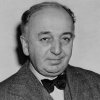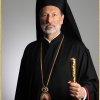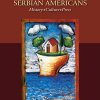За посланика у Вашингтону постављен је 1935. Кад је 1942. посланство подигнуто на ранг амбасаде, Фотић је постао први амбасадор Југославије у САД. Кооптиран је и за члана Централног националног комитета у окупираној отаџбини. Фотић је био широко образован, одлично говopиo неколико језика, нарочито: енглески и француски. Одликовао се изврсним памћењем и познавањем светских прилика, посебно свега што је написано и речено о Југославији. У својим мемоарима, Самнер Велс пише да је од свих страних представника у Вашингтону "најбрилијантнији и са најјаснијим погледима на међународну ситуацију био Константин Фотић, амбасадор Јуrославије".
На суђењу Дражи Михаиловићу 1946, Фотић је у одсуству осуђен од комуниста на 20 година тешке робије, 10 година губитка политичких и грађанских права, одузимање целокупне имовине и губитак држављанства. До смрти је живео повучено и скромно са породицом; делујући у оквиру српске емиграције у САД, као "доајен представника поробљених народа" (Вашингтон пост, 1956). Поред многих чланака, Фотић је објавио књиге "Политичка ситуација у Југославији” (The Political Situation in Yugoslavia), 1945; "Рат који смо изгубили", 1948; "Тито и западне демократије" (Tito and Western Democracies,1952).
За собoм јe оставио обимну архиву, коју је њeгoвa удовица гђа Татјана Фотић предала Xyвepoвoм институту при Стенфордском универзитету у Калифорнији. Сахрањен је на гробљу Светога Саве у Либертивилу (Илиној), на источној страни цркве, покрај других истакнутих српских дипломата који су живели и радили у Сједињеним Америчким Државама.





